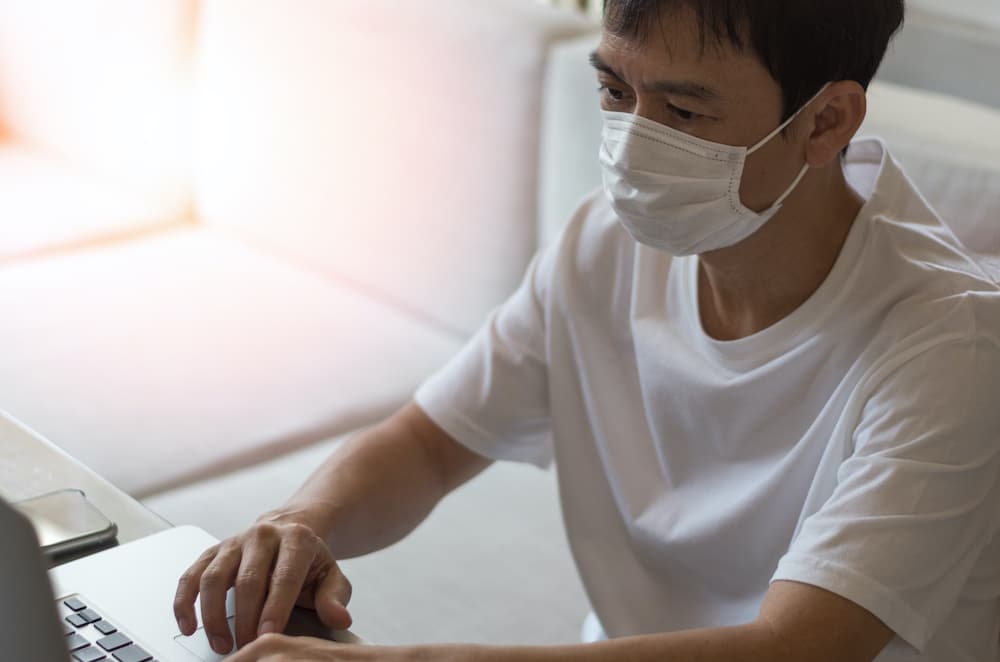Coronavirus News: What Are Addiction Treatment Centers Doing?


How COVID-19 is Impacting Addiction Treatment Centers
The coronavirus (COVID-19) pandemic has changed the way the United States functions, causing its industries to change the way they function as well. Addiction treatment centers are not exempt from this change. Social isolation measures are contributing to some individual’s increased drug and alcohol abuse, while causing some recovering addicts to relapse. Drug and alcohol rehab centers remain operational, as they are an essential tool to help those at risk. Some people may be concerned that leaving their home to seek treatment will increase their risk of contracting the virus. However, continuing to abuse drugs or alcohol puts the user at an increased risk of overdose, along with a myriad of other dangerous health problems. Addiction treatment centers are working to provide a safe environment for their patients and staff.
Outpatient Treatment
In outpatient treatment, patients continue living at home but travel to a rehabilitation facility at a set number of times and days, sometimes daily, to receive counseling, medication-assisted treatment, and other services that are part of their treatment plan. Outpatient treatment may be a good option for people to receive treatment, while limiting their contact with others. The American Society of Addiction Medicine (ASAM) has provided guidance for treatment centers on infection control procedures. This guideline has 3 main principles:
- Protect patients and staff from coronavirus infection.
- Maintain access to addiction treatment services.
- Maintain a therapeutic environment for patients with substance use disorders.
Along with these principles, 3 main considerations are accounted for. The first is the patients’ needs depending on their substance use disorder, second is the medical risk that they face if infected with COVID-19, and third is the likelihood of spreading COVID-19 to others. All of these factors should be taken into consideration before beginning treatment.
Before a patient arrives at a treatment facility, it is recommended that they be screened via phone for COVID-19 symptoms, such as cough, fever, and shortness of breath. If they may be infected or have been around someone who tested positive for COVID-19, it may be wise to consider telehealth options. For non-urgent appointments, it should be determined if it is appropriate to conduct appointments over the phone or computer. Otherwise, patients should be screened once more upon arrival to the facility. Anyone who presents with symptoms should be evaluated by a medical professional and be isolated from others while waiting for the results of a test.
Elevated cleaning practices should be put in place by all treatment facilities. Waiting rooms are recommended to be supplied with hand sanitizer, tissues, and trash cans, and items likes toys and magazines should be removed, or cleaned regularly. Sanitary guidelines released by the Centers for Disease Control and Prevention (CDC) should be displayed, and seats should be placed 6 feet apart. Some facilities may choose to require and distribute face masks. If a staff member is interacting with a patient who may have COVID-19, it is suggested that they wear a mask, protective eye gear, and gloves. In an interview with Forbes, Kelly Clark, MD, MBA, former ASAM President, said, “For the health of patients, it is imperative that infection control precautions be followed.”
Inpatient Treatment
While outpatient treatment and telehealth options may be a good avenue for some patients, they are not appropriate for everyone. People with a severe substance use disorder have better results when attending an inpatient rehabilitation facility, also called residential treatment. Patients live at a rehab center 24/7 where they undergo treatment and have access to constant care. This may be vital to some, especially those who require a medically supervised detox. To reduce the risk of the transmission of COVID-19, inpatient facilities are recommended to follow the same screening procedures as outpatient facilities, as well as screening staff and visitors upon each entry to the facility. Patients who test positive for COVID-19 should be placed in quarantine until recovered, if they do not need to be transferred to a medical facility. ASAM stated in its guidelines, “it may be necessary to designate entire treatment programs as well as community housing locations as available to either infectious or non-infectious persons.”
How COVID-19 May Impact the Future of Addiction Treatment
As the pandemic continues to unfold, some states are extending their lockdowns while others slowly ease up on restrictions. However, it is likely that there will be a new version of what is considered normal. It is suspected that there will be a surge in the demand for addiction treatment services, as many people are projected to relapse due to the stress of living through COVID-19. Treatment centers must be prepared to provide care to these patients, while maintaining proper safety precautions. Also, there has been a spike in telehealth visits. During March, telehealth visits surged 50%. These virtual services may become a new standard of care, especially for those with underlying health conditions or those who live in rural areas.
 Pathways Drug Rehabilitation Luxury Addiction Treatment & Detox Center
Pathways Drug Rehabilitation Luxury Addiction Treatment & Detox Center


